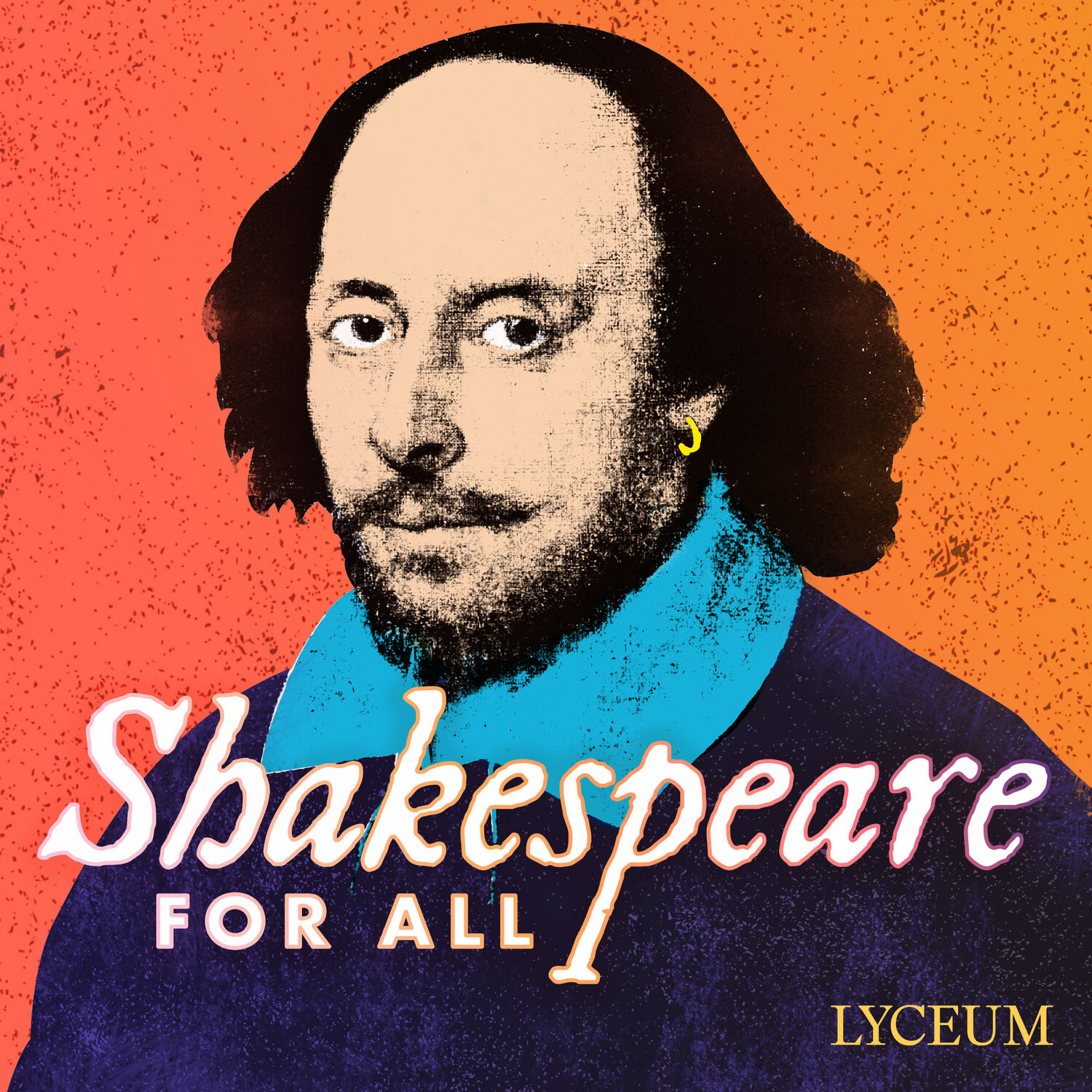Titus Andronicus
“I READ IT LONG AGO”
What You'll Learn
The story of Titus Andronicus and the historical context behind the play
How the play cites classical sources to question their cultural role and values
How the play’s violence and parodic humor help us reflect on the purpose of tragedy
Course Outline
Episode 1: Summary of the play with historical and literary context
Episode 2: Analysis of the play’s style and sources, and critical reflection on those sources
Episode 3: Actors’ recordings of key speeches from the play and discussion of those speeches
Works Consulted for this Course
Bate, Jonathan. How the Classics Made Shakespeare. Princeton: Princeton University Press, 2019.
Burrow, Colin. Shakespeare and Classical Antiquity. Oxford: Oxford University Press, 2013.
Burrow, Colin. “Shakespeare and humanistic culture” in Martindale, Charles, and A. B. Taylor, eds. Shakespeare and the Classics. Cambridge: Cambridge University Press, 2004.
Dobson, Michael, and Stanley Wells, eds. The Oxford Companion to Shakespeare. Oxford: Oxford University Press, 2001.
Dolven, Jeff, and Sean Keilen. “Shakespeare’s reading” in De Grazia, Margreta, and Stanley Wells, eds. The New Cambridge Companion to Shakespeare. 2nd ed. Cambridge: Cambridge University Press, 2010.
Garber, Marjorie B. Shakespeare After All. New York: Pantheon Books, 2004.
James, Heather. Shakespeare's Troy : Drama, Politics, and the Translation of Empire. Cambridge: Cambridge University Press, 1997.
Leggatt, Alexander. “A Modern Perspective: Titus Andronicus.” Folger Shakespeare Library. <https://shakespeare.folger.edu/shakespeares-works/titus-andronicus/titus-andronicus-a-modern-perspective/>
Maus, Katharine Eisaman. “Introduction,” Titus Andronicus, in Shakespeare, William. The Norton Shakespeare. Edited by Stephen Greenblatt, Walter Cohen, Suzanne Gossett, Jean E. Howard, Katharine Eisaman Maus and Gordon McMullan. 3rd ed. New York: W. W. Norton & Company, 2016.
Miola, Robert S. Shakespeare's Rome. Cambridge: Cambridge University Press, 2004.
Miola, Robert S. “Past the Size of Dreaming? Shakespeare's Rome.” Shakespeare Survey (Cambridge) 2016. Vol 69: 1–16.
Nederman, Cary. "Niccolò Machiavelli" in Zalta, Edward N., ed. The Stanford Encyclopedia of Philosophy (Summer 2019). <https://plato.stanford.edu/archives/sum2019/entries/machiavelli/>
Shakespeare, William. Titus Andronicus. Edited by Jonathan Bate. London: Bloomsbury Arden Shakespeare, 2018.
Shakespeare, William. Titus Andronicus and Timon of Athens: Two Classical Plays. Edited by Jonathan Bate and Eric Rasmussen. The RSC Shakespeare. Basingstoke: Macmillan, 2011.
Shakespeare wrote numerous plays and poems engaged with ancient Roman history. Shakespeare’s Renaissance culture had ancient Rome as its foundation stone. Roman language and literature were at the heart of English Renaissance education, and Rome was held up as a model for English civilization. But in Titus Andronicus, the earliest of his Roman works, Shakespeare crafts a bloody tale of violence and revenge that subjects this entire cultural edifice to searing critique. Are the violence and moral vacuums of this play a perversion of Roman values, or are they a central part of the classical tradition? In this course, you’ll learn the story and historical context behind Titus Andronicus, discover the classical sources that structure this play, and see how the play’s most controversial elements pose a serious question about the purpose of tragedy.
In Part 1, you’ll be guided through a detailed account of the story with commentary by Russ Leo, Associate Professor of English at Princeton University. This episode introduces the key historical, political, and literary contexts that shape the play’s questions and themes. This summary is told using the language of the play itself, placing key quotations in context to help you understand where these lines come from and what they mean.
Part 2 opens with a discussion of the place of Rome in Renaissance culture. It then analyzes the Roman classical sources – sources his audience knew well – that Shakespeare uses to construct his plot, and how Shakespeare’s use of those sources calls their moral values into question. It goes on to discuss the elements of the play that have generated most shock and revulsion – the graphic violence, the irreverent dark humor – and how they relate to the very purpose of theatre.
Part 3 features close-readings of several significant scenes that show how religion, race, and literary tradition function within the violent world of Titus Andronicus and sometimes provoke that violence.
You can hear the third episode of this course for free below. For access to the full course and all of Season Two, subscribe today on Himalaya Learning. Use the promo code BARD for 30 days free.
Speeches and Performers
Titus, Marcus, and Publius, Act 4, “Terras Astraea reliquit …” (Jonathan Oliver)
Aaron, Lucius, and the Goths, Act 5, “And if it please thee? …” (Yolanda Ovide)
Tamora, Titus, Chiron, Demetrius, Act 5, “If thou didst know me … ” (Tiffany Abercrombie)
Course Instructor
Russ Leo
Associate Professor of English at Princeton University
Russ Leo is Associate Professor of English at Princeton University. Leo specializes in early modern literature with a specific interest in the entangled histories of poetry, philosophy, and political economy in the seventeenth century. He also specializes in theory and criticism, paying particular attention to the long histories of Spinozism in Marxism, psychoanalysis, and other theoretical traditions. Leo received his PhD in 2009 from the Program in Literature at Duke University, where he also received certificates in Feminist Studies and Interdisciplinary Medieval and Renaissance Studies. He joined the English Department in 2012, after a three-year tenure as a Perkins-Cotsen Postdoctoral Fellow in the Society of Fellows at Princeton University. Leo’s first book, Tragedy as Philosophy in Reformation Europe (forthcoming from Oxford University Press in January 2019) traces the emergence of distinctly philosophical ideas of tragedy, irreducible to drama or performance, inextricable from rhetoric, dialectic, and metaphysics. Leo is currently at work on a second book, tentatively titled Milton, Spinoza, and the Genres of Enlightenment. Taking Milton and Spinoza as its two poles, this work examines the varieties of writing that emerged between 1660 and 1750 to address fundamental problems of desire and enthusiasm, offering a detailed sketch of an exciting and experimental period in the histories of literature and philosophy.



